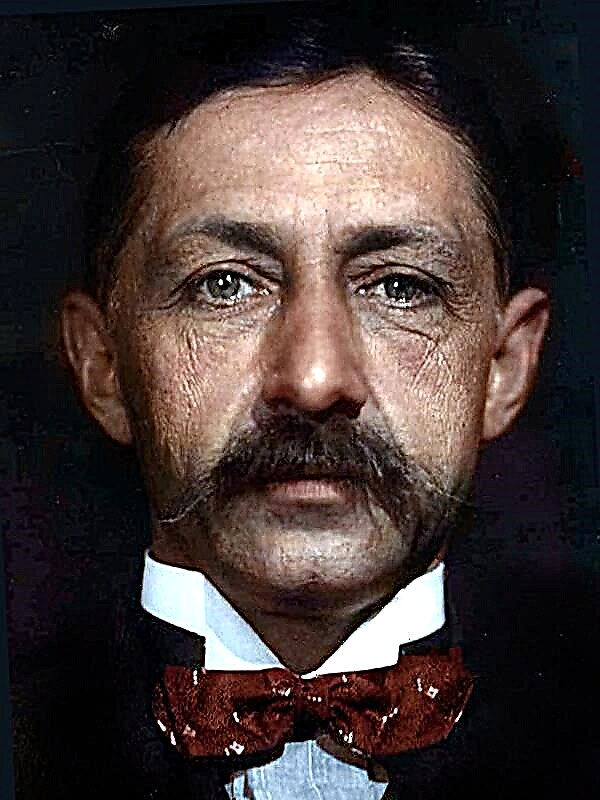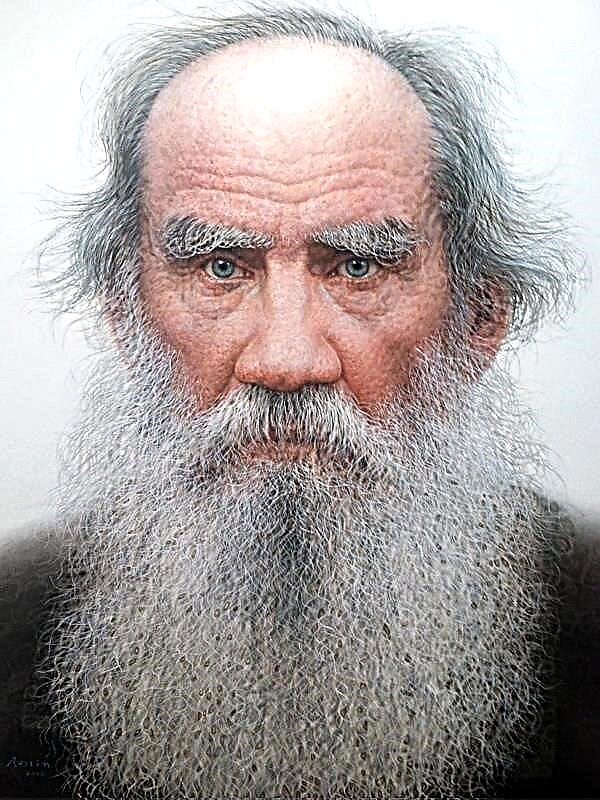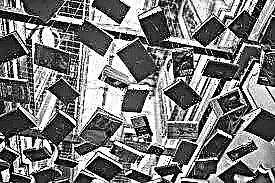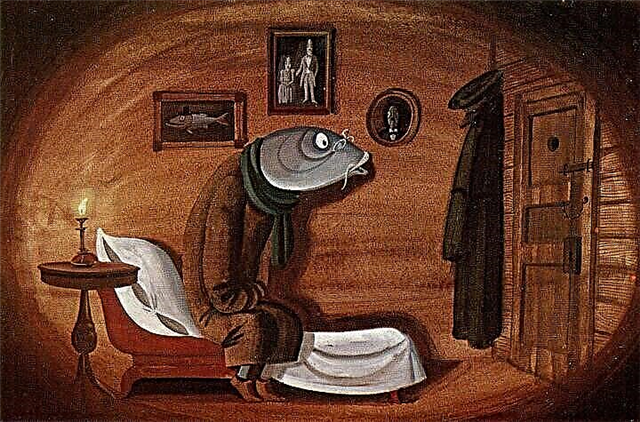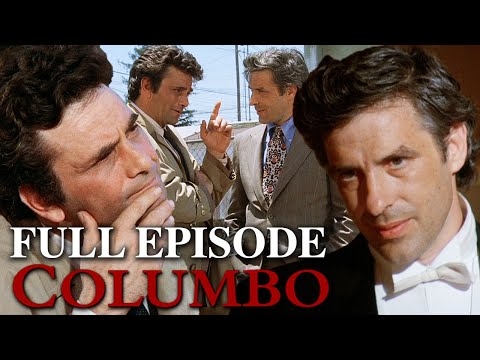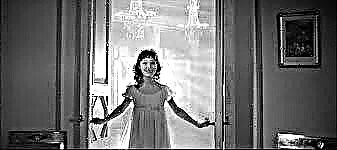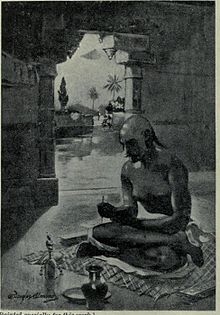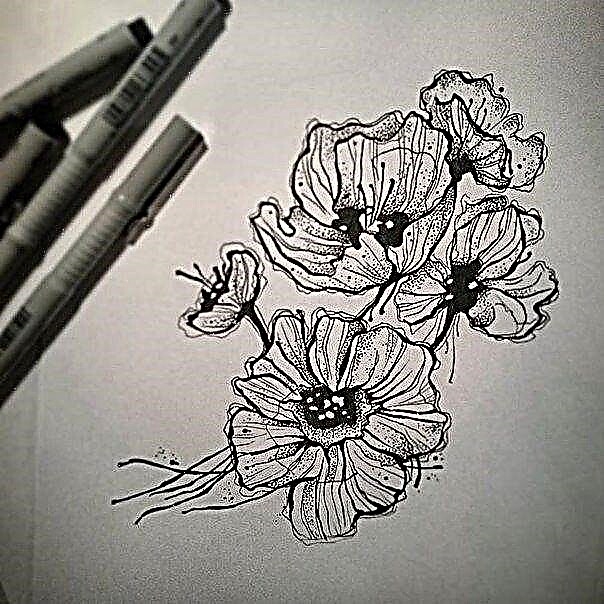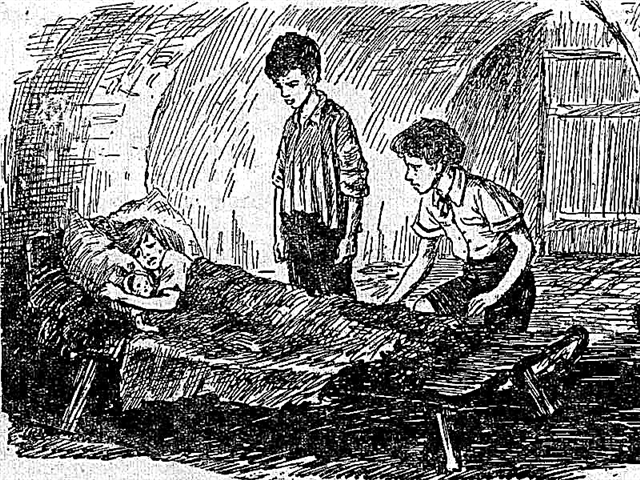The poem "October". The work of Milyukov and Kuskova. "October 25, 1917." The names for this project were offered different, but the meaning is still the same - the poem “Good!” - this is a creation saturated with the spirit of the revolution, its pain and joy of renewal. From the very first lines we see how sharp the verse is written work, we can note its slogan. “Fly with a telegram, stanza!” The poet exclaims. Each line of stairs has its own idea. Let's try to figure out what's what, in this work of V.V. Mayakovsky, one of the most controversial poets of the 20th century.
History of creation
The poem “Good!” It was written in 1927, in fact, in the wake of the revolution. Being a programmatic work of Vladimir Mayakovsky, the poem most vividly reflected the events of the revolutionary time.
The poet welcomes the revolution and the changes that it brings with it. Nevertheless, the satirical subtext of the work is clearly visible throughout the text. For example, in the lines “Which are temporary here?” Slash! Your time has ended ”, the Provisional Government is clearly meant, and the poet’s attitude towards him is impartial.
Genre, size, direction
The genre of this work can be defined as a poetic chronicle. In other words, the image of real events in chronological order.
The poetic size of the poem is difficult to determine, since many phrases are sounds, interjections, fragmentary remarks, slogans, chopped phrases (“Fuck! Tah!”; “Oooh! Strength!”; “Ah!”; “Ready to die we are for Es Es Es Er! ”;“ They write ... from the village ... they burned ... I have ... a library in the estate ”;“ Up-flag! / Tear-stand! / Enemy-lay! / Day-rubbish ”, etc.) . Mayakovsky as a whole accented verse prevails.
Composition
The work is divided into 19 chapters, where events go one after another, sequentially, enclosing the slogans of the poet, his experiences, as well as dialogues, exclamations, rhetorical questions.
Historical figures in the poem come to the fore, the author’s voice becomes less important.
We see the poet’s positive attitude to the changes taking place in the country, his joy and even pride in Russia (“A land where air is like sweet fruit / throw and rush, whirling, - / but the earth with which is freezing together / cannot be stopped loving forever ").
The main images and their characteristics
We are faced with real historical figures, contemporaries of the poet, including Mayakovsky’s fellow pen –A.A. Block.
Lenin, Kamensky, Kaledin, Podvoisky, Dzerzhinsky, Krasin, Voikov and some others - these are real historical figures that appear on the pages of the poem. One way or another, but some of them are portrayed somewhat ironically - for example, Milyukov and Kerensky.
The image of Alexander Blok is introduced into the poem intentionally. First of all, because this poet is the author of the poem "Twelve", also dedicated to the revolutionary events of 1917. We see how Mayakovsky’s poem sinking “Russia of the Bloc”, with its mystery, strangers, haze of the north. This is a time of change, a time when there is no time to wait for a miracle - you need to act yourself and lift the country off its knees. And this can only be done together, rallying and uniting the efforts of the people.
Themes and Issues
Researcher A. Lezhnev believes that the only real fact in the poem is the capture of the Winter Palace, and all the rest is “talk“ about, ”sharpness, slogans.” At the same time, in an article by V.A. Katanyan claims that the stanza dedicated to the capture of Zimnyi is superimposed on the motive of the song about Stepan Razin:
In this poem, the question arises sharply about the bourgeoisie and the working class, about the Bolsheviks and the Provisional Government, about the transition to a new socialist system. The hunger of soldiers (“lumberjacks stand behind breadcards”) is interspersed with the expanse of the rich. The revolution was designed to put an end to this, to return to the people that which belongs to them rightfully - their land, and also to join forces to conclude a truce with the countries with which the war was waged. To do everything possible so that Russia once again becomes a prosperous and strong state. The themes raised in this work are the theme of armed insurrection, the theme of the distribution of resources, the theme of the transition to the socialist system of the state, the theme of peace and freedom (“For bread! For peace! For freedom!”), The theme of cultural education (“No, I don’t for a monarchy with crowns, with eagles, BUT socialism needs a basis. First democracy, then parliament. Culture is needed. And we, Asia, sir! ”). The author tells us that in the near future, great changes await Russia. She has to radically rebuild, become a strong and independent state to overcome the problems associated with hunger, devastation and exhaustion after the First World War. Each citizen individually, all people taken together must defend the honor of their native country, together contribute to the growth and establishment of a prosperous state.
Idea
The main idea of the poem is that only after going through a test, such as hunger, military upheavals, the willingness to die for the idea of statehood, can give a powerful impetus to the development of the country and contribute to positive changes.
The main thing is to think about the people, which V. Mayakovsky tells us about in the poem “Good!” And that is precisely why the Bolsheviks, having come to power, adopted the decree “On Peace”, “On Army Revolutionary Committees” and “On Earth”. Only a collective solution to problems in the interests of the people can contribute to improving the situation in the country as a whole, leading to its prosperity.
Of course, one can talk a lot about the fact that the Bolsheviks ordered this poem to the author. But the fact remains - this work is an ode to the revolution and shows the real heroes of Bolshevism, who became the head of the emerging socialist state.
Means of artistic expression
There are a lot of occasionalisms in the poem. So, for example, the phrases "bayonets bristling", "steps of a sazhen", "the city, in the posters cadre", "on the enfilade, greetings of the oranges." Kerenki echoes the surname Kerensky, and Alexander Fedorovich Kerensky himself (Minister-Chairman of the Provisional Government) associates Mayakovsky with Tsarina Alexandra Fedorovna (“To be a Kerensky bat and to be stripped! / Already we will raise this king Alexandra Fedorovna”).
There are unexpected comparisons: "rumors-pigs", "clouds-ships."
Often you can find an imitation of colloquial speech, colloquial phrases ("I am bored ...", "three thousand days"), abbreviations are transmitted in great detail ("Es Es Es Er", "Veesenha").
For Mayakovsky, Russia is a “teenage country”, which means that it is time for her to grow up and long years of life (“We can grow up to a hundred without old age”). The young republic is just starting to build and stand up, grow and develop, sow and improve, which means that everything will really be fine.

